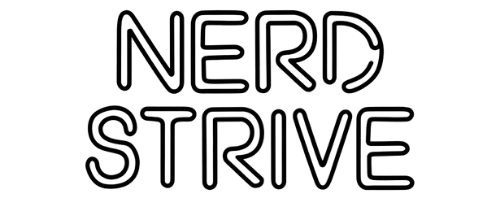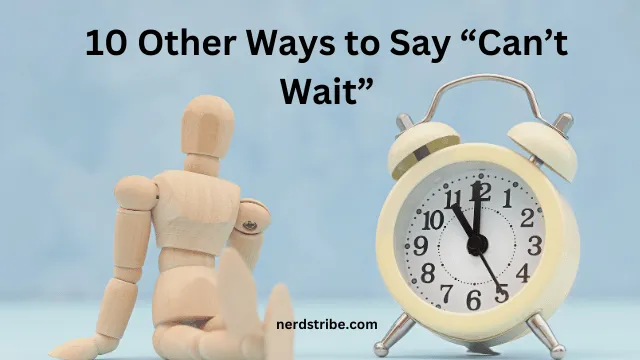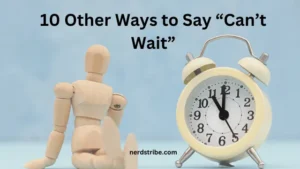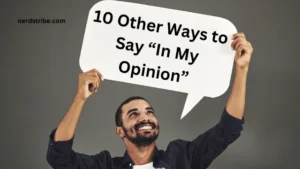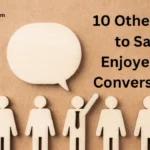We’ve all been there: waiting eagerly for a much-anticipated event. Whether it’s a special trip, an exciting movie, or a long-awaited reunion, the phrase “Can’t wait” often comes to mind. But let’s be honest, it can feel a little overused, losing some of its charm.
Wouldn’t it be great to mix it up and find new, more creative ways to express that bubbling excitement? In this post, we’ll explore 10 alternative ways to say “Can’t wait,” allowing you to communicate your anticipation in a more dynamic and engaging way.
The words we choose to express excitement can add a lot of color to our conversations. Using different phrases can convey varying levels of enthusiasm and can make your speech more personal or dramatic, depending on the context. With so many options available, you can communicate your excitement more effectively and with greater precision.
So, whether you’re writing a message to a friend or sharing your excitement for an upcoming event at work, this article will give you a range of phrases to choose from. Let’s dive into 10 alternatives to “Can’t wait” and discover how they can enhance your communication and convey exactly how you feel.

Contents
- 1 1. “Eagerly anticipating”
- 2 2. “Looking forward to”
- 3 3. “Counting down the days”
- 4 4. “Biting my nails”
- 5 5. “On the edge of my seat”
- 6 6. “Thrilled to”
- 7 7. “Can hardly wait”
- 8 8. “Longing for”
- 9 9. “Excitedly awaiting”
- 10 10. “Impatiently awaiting”
- 11 Conclusion
- 12 FAQs
- 12.1 When should I use “Can’t wait” instead of these alternatives?
- 12.2 Are these alternatives appropriate for both formal and informal settings?
- 12.3 Which phrase is most energetic?
- 12.4 Can I use these alternatives in text messages?
- 12.5 Do these phrases work well for sharing excitement about events?
- 12.6 Can these phrases make me sound more sophisticated?
1. “Eagerly anticipating”
- Conveys: A formal, sophisticated way to express keen expectation.
- Example: “I am eagerly anticipating the arrival of my new book.”
- Nuance: Suggests a controlled excitement, ideal for professional or refined settings.
2. “Looking forward to”
- Conveys: A widely used and versatile phrase expressing positive anticipation.
- Example: “I’m looking forward to seeing you at the party!”
- Nuance: Universal and neutral; suitable for any context from casual to professional.
3. “Counting down the days”
- Conveys: A more playful and informal expression, emphasizing the passing of time.
- Example: “I’m counting down the days until my vacation starts!”
- Nuance: Impatient excitement, perfect for informal situations.
4. “Biting my nails”
- Conveys: An idiomatic expression that shows both excitement and a hint of nervousness.
- Example: “I’m biting my nails waiting to hear back from the job interview.”
- Nuance: Intense anticipation, often used when there’s a mix of excitement and nervousness.
5. “On the edge of my seat”
- Conveys: A phrase used to describe heightened anticipation or suspense.
- Example: “I was on the edge of my seat during the final minutes of the game!”
- Nuance: Used in suspenseful contexts, showing eagerness to know what happens next.

6. “Thrilled to”
- Conveys: A more emphatic, energetic expression of joy and anticipation.
- Example: “I am thrilled to meet the guest speaker tomorrow.”
- Nuance: Conveys strong enthusiasm and is suitable for both personal and professional contexts.
7. “Can hardly wait”
- Conveys: A stronger version of “can’t wait,” emphasizing impatience.
- Example: “I can hardly wait for the concert this weekend!”
- Nuance: High-energy anticipation with a focus on impatience.
8. “Longing for”
- Conveys: A poetic and emotional expression of yearning and deep desire.
- Example: “I am longing for the summer holidays to begin.”
- Nuance: A deeper, emotional form of anticipation, perfect for reflective or sentimental moments.
9. “Excitedly awaiting”
- Conveys: A more formal and refined alternative, emphasizing eager anticipation.
- Example: “She was excitedly awaiting the arrival of her family.”
- Nuance: A formal way to express excitement with a touch of refinement.
10. “Impatiently awaiting”
- Conveys: A phrase that underscores impatience and eagerness, often with a sense of restlessness.
- Example: “I am impatiently awaiting the release of the new album.”
- Nuance: Used to show impatience when you’re anxiously waiting for something.
Conclusion
The expression “Can’t wait” is a simple and effective way to communicate eagerness, but it’s just one of many ways to convey anticipation. By incorporating alternatives like “eagerly anticipating,” “looking forward to,” or “counting down the days,” you can add depth and nuance to your conversations, reflecting different shades of excitement.
These alternatives allow you to tailor your expression of eagerness based on the context, whether casual or formal. Choosing the right phrase can enrich your communication, giving it personality and flair.
So, next time you’re filled with excitement, try switching up the usual “Can’t wait” with one of these creative alternatives. You’ll be surprised at how much more vivid and expressive your language can become.
FAQs
When should I use “Can’t wait” instead of these alternatives?
“Can’t wait” is best used for general excitement. If you want more specificity or nuance, opt for one of the alternatives.
Are these alternatives appropriate for both formal and informal settings?
Yes, some, like “looking forward to” and “eagerly anticipating,” work in both settings, while others like “biting my nails” are more informal.
Which phrase is most energetic?
“Can hardly wait” and “thrilled to” are among the most energetic expressions of excitement.
Can I use these alternatives in text messages?
Yes! Many of these phrases, like “counting down the days” and “just longing for,” are perfect for text messages.
Do these phrases work well for sharing excitement about events?
Absolutely! Whether it’s a birthday party, vacation, or new release, these alternatives effectively convey your excitement.
Can these phrases make me sound more sophisticated?
Yes! Phrases like “excitedly awaiting” and “eagerly anticipating” can add a touch of sophistication to your language.
